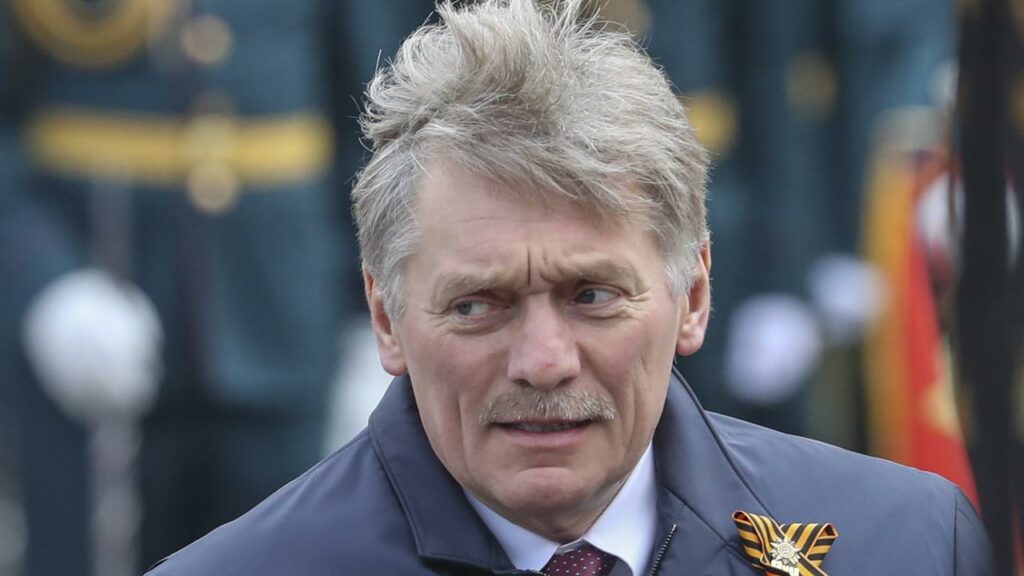Russia says it won’t accept oil price cap
|

Russia “will not accept” a price cap on its oil and is analysing how to respond, the Kremlin says in response to an international deal aimed at limiting a key source of funding for its war in Ukraine while officials in Kyiv say the measure will do little to deter Russia.
Kremlin spokesman Dmitry Peskov said Russia had made preparations for Friday’s price cap announcement by the G7 countries, the European Union and Australia, the Russian state news agency TASS reported.
“We will not accept this cap,” RIA news agency quoted him as saying.
He added that Russia would conduct a rapid analysis of the agreement and respond after that, RIA reported.
Russia has repeatedly said it will not supply oil to countries that implement the cap – a stance reaffirmed by Mikhail Ulyanov, Russia’s ambassador to international organisations in Vienna, in posts on social media on Saturday.
“Starting from this year, Europe will live without Russian oil,” he said.
The G7 price cap will allow non-EU countries to continue importing seaborne Russian crude oil but it will prohibit shipping, insurance and re-insurance companies from handling cargoes of Russian crude around the globe unless it is sold for less than $US60 ($A88) per barrel.
That could complicate the shipment of Russian crude priced above the cap, even to countries which are not part of the agreement.
Russian Urals crude traded at about $US67 a barrel on Friday.
In comments published on Telegram, Russia’s embassy in the United States criticised what it called the “dangerous” move and said Russia would continue to find buyers for its oil.
“Steps like these will inevitably result in increasing uncertainty and imposing higher costs for raw materials’ consumers,” it said.
“Regardless of the current flirtations with the dangerous and illegitimate instrument, we are confident that Russian oil will continue to be in demand.”
Ukrainian President Volodymyr Zelenskiy said on Saturday the $US60 cap was not serious.
“You wouldn’t call it a serious decision to set such a limit for Russian prices, which is quite comfortable for the budget of a terrorist state,” Zelenskiy said in a video address.
“It’s only a matter of time before stronger tools will have to be used anyway. It is a pity that this time will be lost.”
Andriy Yermak, head of Zelenskiy’s administration, said earlier that the cap should be set at $US30 “to destroy the enemy’s economy quicker”.
Meanwhile, French President Emmanuel Macron said Russia’s need for security guarantees should be considered if Putin agrees to negotiations about ending the war in Ukraine.
In an interview with French TV station TF1 recorded during his state visit to the United States last week, Macron said Europe needs to prepare its future security architecture.
“This means that one of the essential points we must address – as President Putin has always said – is the fear that NATO comes right up to its doors, and the deployment of weapons that could threaten Russia,” Macron said.
“That topic will be part of the topics for peace, so we need to prepare what we are ready to do, how we protect our allies and member states, and how to give guarantees to Russia the day it returns to the negotiating table,” Macron said.
Russia and the United States have both said this week they are open to talks in principle, though US President Joe Biden said he would only talk to Putin if the Kremlin chief showed he was interested in ending the war.
Ukraine says negotiations are possible only if Russia stops attacking and pulls out its troops.
On February 8, just weeks before Russia’s invasion, Putin said at a joint news conference with Macron in Moscow that Russia would keep trying to obtain answers from the US and its allies to its main three security demands: no more NATO enlargement; no missile deployments near its borders; and a scaling back of NATO’s military infrastructure in Europe to 1997 levels.
The US said at the time that the Russian demands were “non-starters”.
Reuters